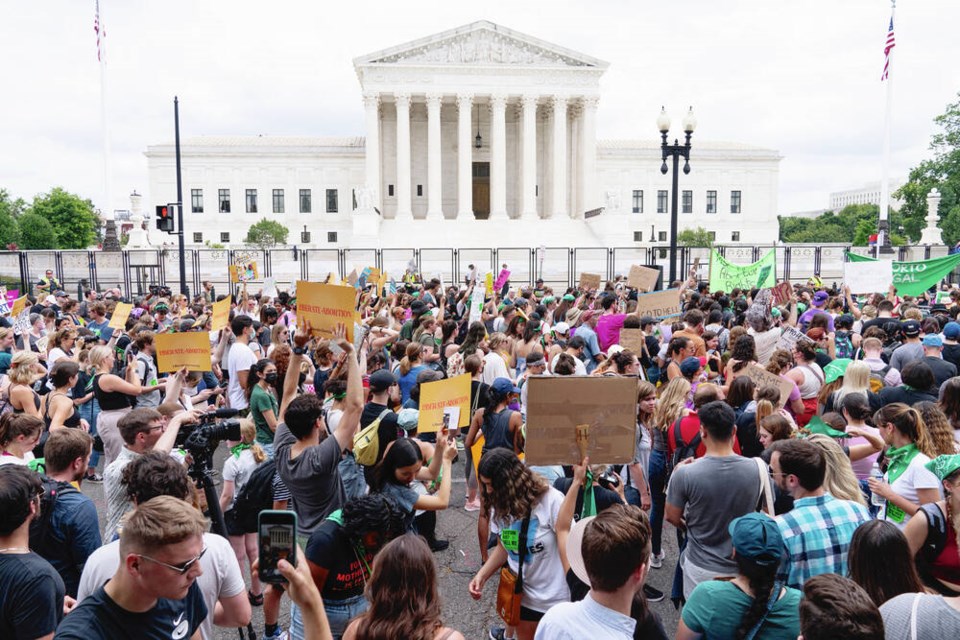The U.S. Supreme Court decision overturning Roe v. Wade will “light a fire” under groups pushing for better abortion access in B.C., abortion advocates in the province say.
Michelle Fortin, executive director of Options for Sexual Health, said she read the 283-page court decision on Friday, calling it a “draining” experience. “We knew it was coming, we were waiting, but it’s still devastating, sad and incredibly angering,” she said.
While many Canadian politicians took to social media with vows to protect abortion access, Fortin said Canada still has a long way to go to provide equitable access to reproductive health care.
Timely access to an abortion provider is key, particularly for women in vulnerable groups or who live in remote communities, but free and accessible contraception, comprehensive sex education and affordable child care are also important, Fortin said.
“We’re doing better, but we’re not out of the woods,” she said.
Fortin said the B.C. government must do more to reduce barriers, particularly in places where there are no abortion clinics. A medical abortion, which requires taking two pills, can only be done before 10 weeks.
To help reduce barriers, some Vancouver clinics have met patients in more remote parts of the province via video to provide medical abortions.
“They’ve been trying to break down some of those barriers, but that’s not been government,” she said. “It would be wonderful if we’d see a greater push to provide this health care from family physicians.”
Options maintains a list of B.C. abortion clinics. There are none listed in Fraser Health, the province’s largest health authority.
Fortin said that doesn’t mean there are no doctors providing abortions in the health region, but many are not public about it. “They’re wary of the stigma.”
Some experts say Canada could see increased demand for abortion services from across the border.
In a commentary written for The Conversation Canada, University of Guelph political scientist Dr. Candace Johnson said some of the states that appear likely to outlaw abortion — including Michigan, North Dakota and Idaho — border rural parts of Ontario, Manitoba, Saskatchewan and B.C.
“Americans who will pay out of pocket for abortions might increase wait times and further restrict access for rural, northern and Indigenous women,” Johnson said.
She is also concerned the drug combination used in medical abortions “will be increasingly scarce or hard to access.”
Fortin said Washington state continues to provide access to abortions, so she didn’t anticipate a huge spike in demand in B.C.
In a joint statement, Premier John Horgan, Finance Minister Selina Robinson and Grace Lore, parliamentary secretary for gender equity, called it a “dark day for everyone who has fought to protect women’s rights.
“The injustice of this day will be remembered, and the devastating consequences endured, for generations.”
The statement recognized there is “more to do” in B.C., particularly to improve access in northern and rural areas.
“Today, we grieve alongside all those heartbroken by this news. Tomorrow, people across Canada and around the world will organize to fight this most recent violation of women’s rights and infringement on their bodies.
“Our government will never, ever back down from supporting a woman’s right to choose.”



